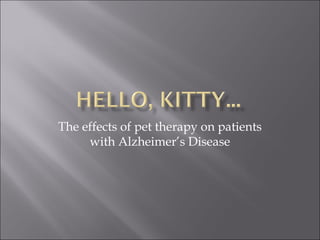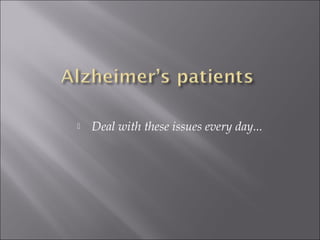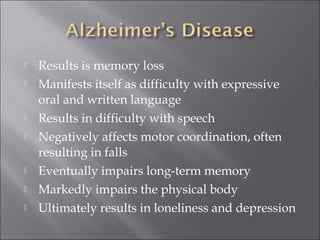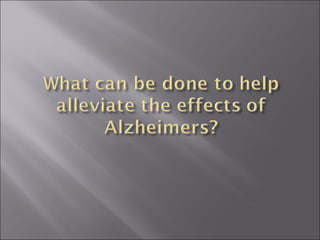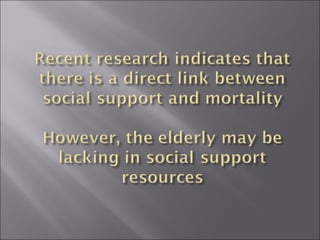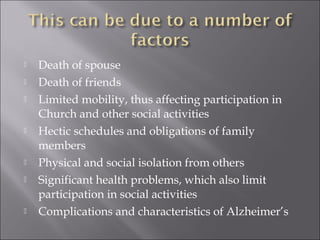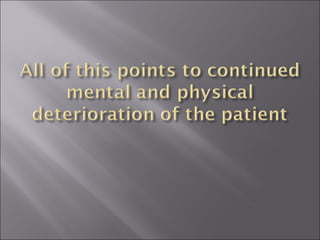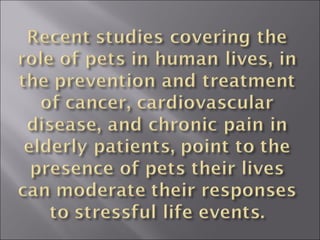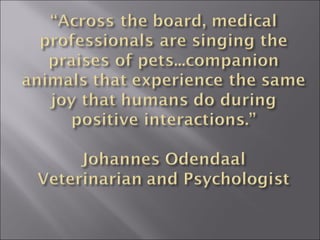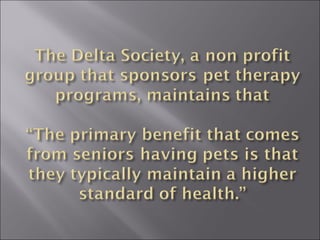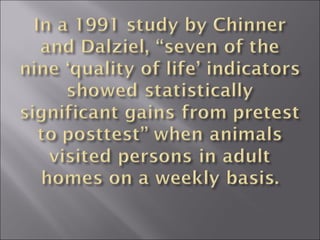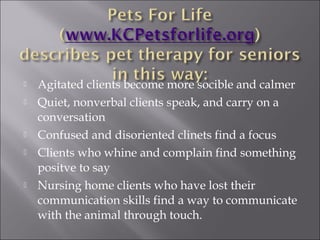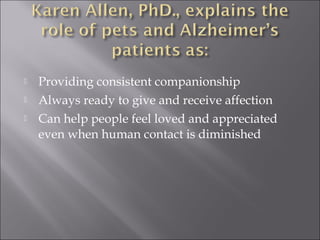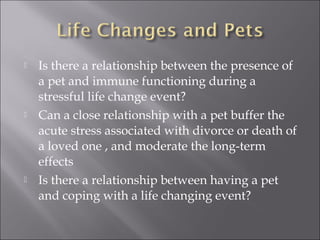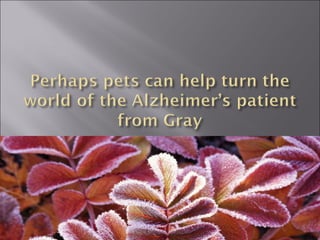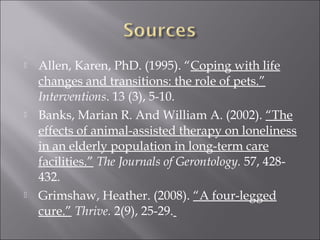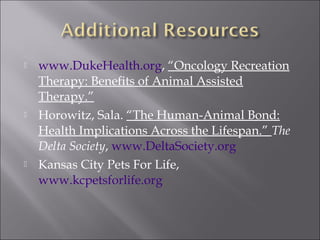Hello, kitty
- 1. The effects of pet therapy on patients with Alzheimer’s Disease
- 2.  As a former Columbia graduate who now has difficulty remembering your grocery list  As a former golf, tennis, or running afficionado who now has difficulty walking up the stairs  As a former teacher, who taught at least 25 children every year, who now cannot remember your own grandchildren’s names  As a former business mogul who now cannot figure out how to pay your own bills...
- 3.  Deal with these issues every day...
- 4.  Results is memory loss  Manifests itself as difficulty with expressive oral and written language  Results in difficulty with speech  Negatively affects motor coordination, often resulting in falls  Eventually impairs long-term memory  Markedly impairs the physical body  Ultimately results in loneliness and depression
- 7.  Death of spouse  Death of friends  Limited mobility, thus affecting participation in Church and other social activities  Hectic schedules and obligations of family members  Physical and social isolation from others  Significant health problems, which also limit participation in social activities  Complications and characteristics of Alzheimer’s
- 14.  Agitated clients become more socible and calmer  Quiet, nonverbal clients speak, and carry on a conversation  Confused and disoriented clinets find a focus  Clients who whine and complain find something positve to say  Nursing home clients who have lost their communication skills find a way to communicate with the animal through touch.
- 15.  Providing consistent companionship  Always ready to give and receive affection  Can help people feel loved and appreciated even when human contact is diminished
- 17.  Is there a relationship between the presence of a pet and immune functioning during a stressful life change event?  Can a close relationship with a pet buffer the acute stress associated with divorce or death of a loved one , and moderate the long-term effects  Is there a relationship between having a pet and coping with a life changing event?
- 21.  Allen, Karen, PhD. (1995). “Coping with life changes and transitions: the role of pets.” Interventions. 13 (3), 5-10.  Banks, Marian R. And William A. (2002). “The effects of animal-assisted therapy on loneliness in an elderly population in long-term care facilities.” The Journals of Gerontology. 57, 428- 432.  Grimshaw, Heather. (2008). “A four-legged cure.” Thrive. 2(9), 25-29.
- 22.  www.DukeHealth.org, “Oncology Recreation Therapy: Benefits of Animal Assisted Therapy.”  Horowitz, Sala. “The Human-Animal Bond: Health Implications Across the Lifespan.” The Delta Society, www.DeltaSociety.org  Kansas City Pets For Life, www.kcpetsforlife.org
Editor's Notes
- #11: Source: Horowitz, Sala. The human-animal bond: implications across the lifespan, Alternative and Complementary Therapies, The Delta Society, Oct. 14, 2008, volume 5, pp. 251-256.
- #12: Source: Grimshaw, Heather. A four-legged cure, Thrive, vol. 2, Issue 8, July 2008.
- #13: Source: www.Deltasociety.org
- #14: Source: Oncology Recreation Therapy, Benefits of Animal Assisted Therapy, www.DukeHealth.org
- #16: Source: Allen, Karen PhD., “Coping with Life Changes and Transitions: the Role of the Pet”
- #18: Source: Allen, Karen, PhD., “Coping with Life Changes and Transitions: The Role of the Pet”

